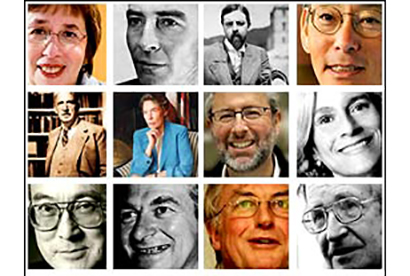Graduate Council mines its past to make venerable lectures available online
The Graduate Council's renovated site offers video webcasts and downloadable audio podcasts of talks offered through its seven endowed lectureships, dating back to the early 20th century.

November 5, 2009
BERKELEY — For more than a century, UC Berkeley’s Graduate Council has hosted free public lectures by prominent scholars, scientists, and public intellectuals — from renowned French anthropologist Claude Levi-Strauss to Pulitzer Prize-winning correspondent Linda Greenhouse and Nobelists Linus Pauling and Steven Chu. Now the public can revisit a growing number of those events, thanks to an ambitious digitization project and a new and improved website.
The Graduate Council’s renovated site offers video webcasts and downloadable audio podcasts of talks offered through its seven endowed lectureships, dating back to the early 20th century.
Those who missed this fall’s lectures — Leon Lederman on science education, Steven Usselman on technology and democracy, Caroline Walker Bynum on “material miracles” in Medieval Europe — can download MP3s of those talks and listen to them at the gym.
One can also travel back in time via recordings “from the vault.” These include lecture videos recorded digitally, beginning in 2001 — many of them linked to an interview with the speaker, conducted by Harry Kreisler as part of his Conversations with History series. The public can also access digitized versions of a sampling of older audio files, originally recorded on 10-inch tape reels and archived at the Berkeley Language Center (BLC), in the Dwinelle Hall basement.
According to Ellen Gobler, who manages the Graduate Council endowed lectures for the Graduate Division, “the late (great) Gina Hotta” — BLC’s recording technician, who passed away this September — “worked her magic and they sound amazing.” The Graduate Council currently features MP3s of about 20 lectures from the 1960-96 period, and hopes to continue its digitization project in the near future, Gobler says.
“We’re thrilled that this project is moving off the ‘drawing board’ and onto the Web,” she adds. “It’s so much more accessible than our previous site — and really lets the media content shine.”

